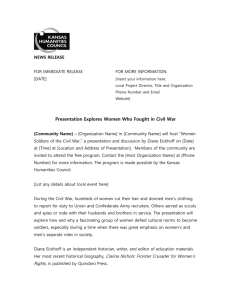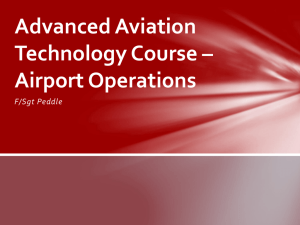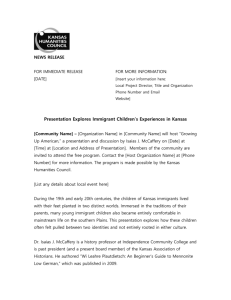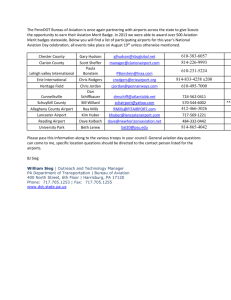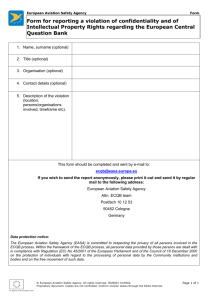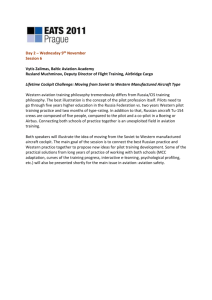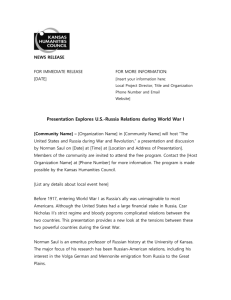Press Release - Kansas Humanities Council
advertisement
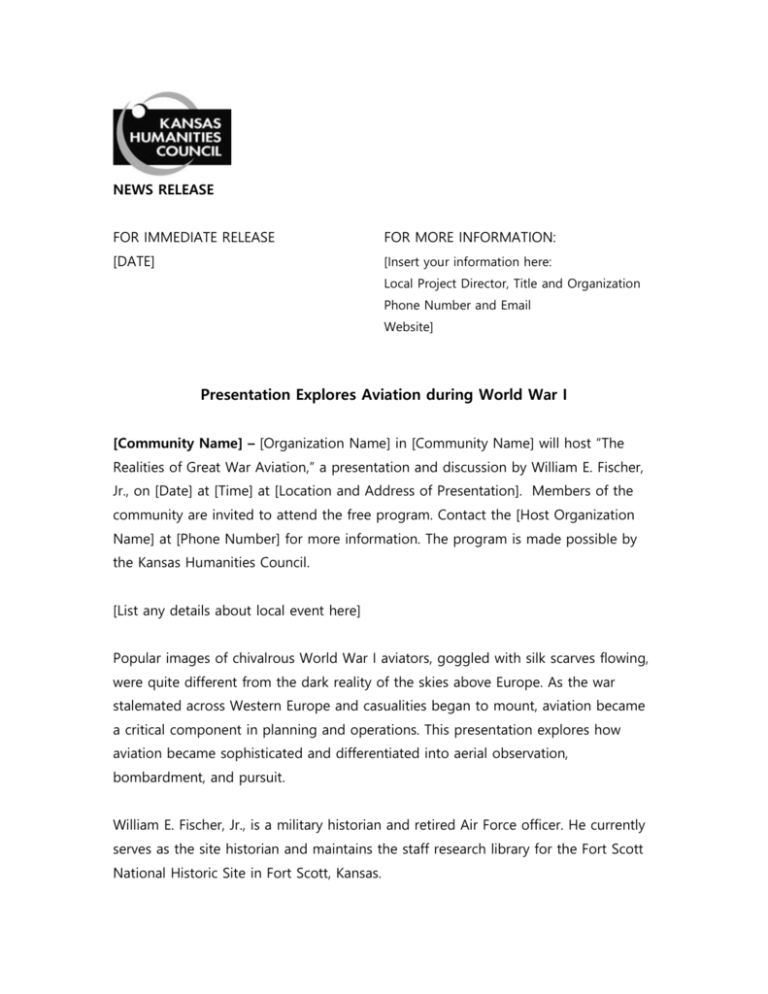
NEWS RELEASE FOR IMMEDIATE RELEASE FOR MORE INFORMATION: [DATE] [Insert your information here: Local Project Director, Title and Organization Phone Number and Email Website] Presentation Explores Aviation during World War I [Community Name] – [Organization Name] in [Community Name] will host “The Realities of Great War Aviation,” a presentation and discussion by William E. Fischer, Jr., on [Date] at [Time] at [Location and Address of Presentation]. Members of the community are invited to attend the free program. Contact the [Host Organization Name] at [Phone Number] for more information. The program is made possible by the Kansas Humanities Council. [List any details about local event here] Popular images of chivalrous World War I aviators, goggled with silk scarves flowing, were quite different from the dark reality of the skies above Europe. As the war stalemated across Western Europe and casualities began to mount, aviation became a critical component in planning and operations. This presentation explores how aviation became sophisticated and differentiated into aerial observation, bombardment, and pursuit. William E. Fischer, Jr., is a military historian and retired Air Force officer. He currently serves as the site historian and maintains the staff research library for the Fort Scott National Historic Site in Fort Scott, Kansas. “Barely a month after the April 1917 United States declaration of war against Germany, French Premier Alexandre Ribot requested that the United States provide 4,500 aircraft, 5,000 pilots, and 50,000 mechanics,” notes Fischer. “Yet, only 87 aircraft were produced in America in all of 1916, so unprepared was the state of its aviation industry and military air service.” “The Realities of Great War Aviation” is part of the Kansas Humanities Council’s Humanities Speakers Bureau, featuring presentations and discussions that examine our shared human experience—our innovations, culture, heritage, and conflicts. -MORE- Page 2 – Presentation Explores Aviation during World War I The Kansas Humanities Council conducts and supports community-based programs, serves as a financial resource through an active grant-making program, and encourages Kansans to engage in the civic and cultural life of their communities. For more information about KHC programs contact the Kansas Humanities Council at 785/357-0359 or visit online at www.kansashumanities.org. For more information about “The Realities of Great War Aviation” in [Community] contact the [Host Organization] at [Phone Number] or visit [Website]. ###

